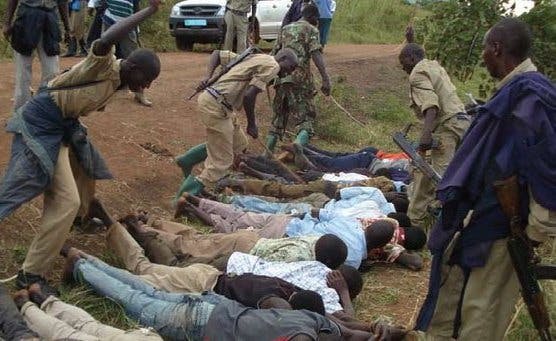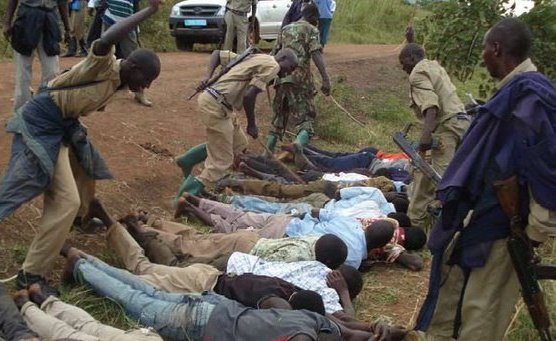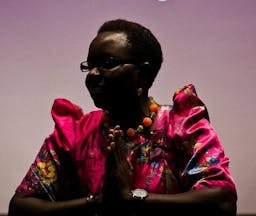Uganda's Presidential Elections 2011 characterized by bribery and intimidation.
Jan 21, 2015
Story


Friday, February 18 2011 Uganda held its second multiparty politics election since the country’s constitution amended in 2000. However, this year’s presidential and parliamentary elections like the one of 2006 have been characterized with bribery, massive corruption, intimidation, vote buying and violence. In the capital Kampala, there were reported cases of bribery, ballot stuffing and multiple voting. Cases of ghost voting and multiple voting were also witnessed in many other parts in the country.
Democracy seems to have lost meaning not only in Uganda but in several African countries. The nationals who are the voters do not have free will but rather by the influence of bribery, corruption and intimidation. It is not about the political ideologies anymore, it is about “giving cash”. It is upon this background that the nationals have a culture of “no money, no vote” and this has eaten-up the political development of this country.
With the climax of the long awaited presidential elections, the final results released by the Electoral Commission show the incumbent President Yoweri Museveni as the winner with 68.4% of the votes cast counted in his favor. Inter Party Cooperation flag bearer and the President of Forum for Democratic Change (FDC), Dr. Kizza Besigye was second in the final results with 26%, followed by Nobert Mao, 1.86%.
The opposition said their agents were arrested and removed from polling stations in many districts countrywide. This enabled ballot stuffing and false recording of results.“Local Council officials and security agents have been threatening people of “war” if Museveni does not win this election” Said Besigye.
Before the polling date, the media in the country reported cases of bribery and attempts of buying opposition candidates and supporters by the ruling National Resistance Movement, (NRM). The most published one was the involving relatives of incumbent President attempting to buy off opposition supporters and candidates, the claims the government denies.
On the Election Day, the country witnessed ugly and nasty incidences. There was a lot of violence, intimidation, buying of voters, name it. The police and military deployed massive in the city and throughout the country, some NRM officials also intimidated Ugandans to vote for the ruling party candidates, an act described by the opposition as intimidation.
In eastern Uganda, there was a lot of violence in Budadiri Constituency in Sironko district following clashes between supporters of the ruling NRM and opposition FDC. A journalist was shot, several people were injured and others hospitalized.
Commenting on the violence in the Eastern Uganda, the opposition victim, Mr. Nandala Mafabi, the Public Accounts Committee Chairman and Budadiri West MP said this was a militarized election compared to 2006.Everything was planned to help Museveni and his people win at any cost. And that he was shot and injured in the leg and the bullet that hit the journalist was intended to finish him.
On Sunday February 19, 2011, a resident of Kampala [came to] the FDC HQ, bringing with him 17 ballot papers, which he had been given by NRM and was paid to stuff them into the ballot box when he cast his own vote. The ballot papers were all marked with votes for Museveni.
European Union (EU) election observers said that what they called an unnecessary military presence on voting day had created an uneasy, intimidating feeling.
In the same manner the Elections for city Mayors and other local councils took place on 23 February 2011, a week after the presidential and parliamentary elections. The Kampala Mayoral polls were suspended indefinitely due to reports of ballot stuffing in favor of the ruling NRM candidate. The disruptions began after 339 pre-ticked ballot papers for Mayoral candidate Peter Sematimba were discovered at Bat Valley Polling Station leading to disputes and violence.
If Uganda fails to practice democracy and the Organs of the government falling under the commands of the ruling government, the law and constitution will loose meaning, blood shed will be the order of the day, fear and tension will increase massively, worse still violence will increase not only at a national level but also domestically.
I therefore urge the international community to invest in the leadership and governance practices across all both public and private sectors of Uganda.
This article is part of a writing assignment for Voices of Our Future, which is providing rigorous web 2.0 and new media training for 30 emerging women leaders. We are speaking out for social change from some of the most unheard regions of the world.




